Welcome to the Frankfurt Foundation Quality of Medicines

Every day, medicinal products make a decisive contribution to prevent diseases – especially serious ones – or alleviating ailments, extending the life expectancy of patients and improving their quality of life. In addition to our high expectations of the efficacy and safety of medicines, the pharmaceutical quality of the products is also particularly important with regard to patient care.
The Frankfurt Foundation Quality of Medicines (FFQM) is committed to promoting research activities that are designated to optimally assure the quality of medicinal products in Germany and Europe or, if necessary, further improving them, especially if they are manufactured outside the country. Main concern is the development of advanced processes, the implementation of innovative technologies and their standardization as well as a critical verification of quality assurance concepts.
Download the FFQM flyer here (PDF-File, ~200kB)
Recent news
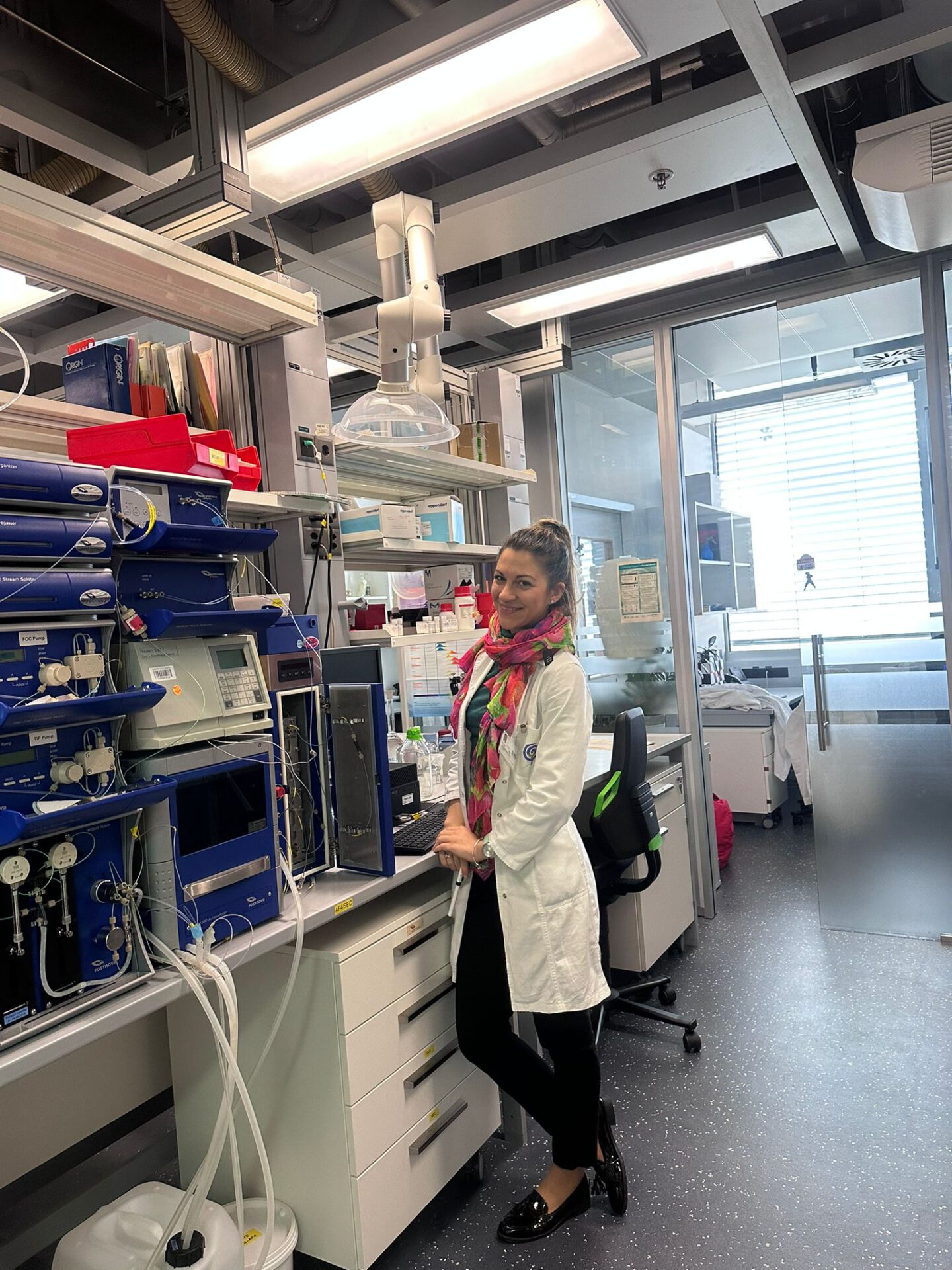
February 6, 2026 · Funding Projekts
Quality requirements for nanomedicines: Filling the gaps – the project was successfully completed
We congratulate Dr. Ines Nikolic on the successful completion of the project “Quality requirements for nanomedicines: Filling the gaps,” which was funded by the Frankfurt Foundation Quality of Medicines. She carried out the work as a postdoctoral researcher in the working group of Prof. Gerrit Borchard at the University of Geneva.
It began with a comprehensive literature review, which led to the publication of a review article in the journal Archives of Pharmacy. This work critically assesses the state of research, identifies key knowledge gaps, and defines the experimental strategy and overarching research questions of the project.
Using a practice-oriented selection of suitable characterization methods, the combination of dynamic light scattering (DLS) and cryogenic transmission electron microscopy (cryo-TEM) was identified as a robust core method for determining the size of nanoparticles.
Based on this, an international laboratory comparison study involving five institutions and six measuring devices was conducted, resulting in concrete best practice recommendations for nanoparticle size determination and confirming its central importance for quality and approval assessments in nanomedicine. The results were published in the International Journal of Pharmaceutics.
For the biorelevant characterization of nanomedicines, Nikolic focused on nanoparticle-biomolecule interactions (proteins, human serum) and on the development of adapted toxicity tests for nanomedicines. Two standard operating procedures (lactate dehydrogenase release test and propidium iodide-based test) were established. This work was published in Drug Delivery and Translational Research.
All project goals were successfully achieved, resulting in a comprehensive physicochemical and biological dataset for selected nanoparticle systems.
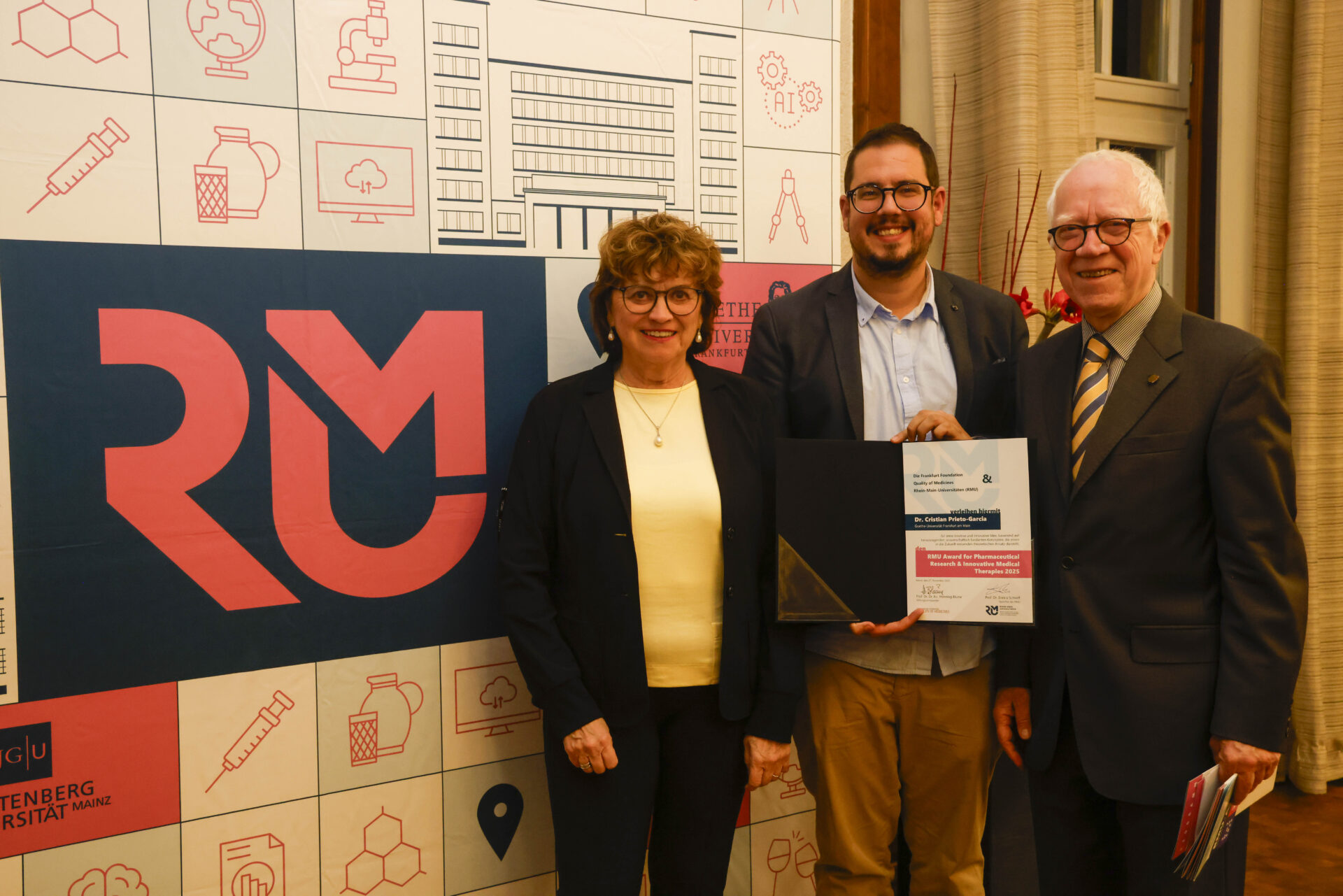
November 30, 2025 · Prices and Awards
Congratulations to Dr. Cristian Prieto-Garcia
This year, the Rhine-Main Universities (RMU) presented awards for the first time to outstanding scientists from the participating universities (Goethe University Frankfurt, Johannes Gutenberg University Mainz, and Technical University of Darmstadt).
Dr. Cristian Prieto-Garcia from the Institute of Biochemistry II at Goethe University Frankfurt was honored with the RMU Award for Pharmaceutical Research and Innovative Medical Therapies, initiated by the Frankfurt Foundation Quality of Medicines (FFQM). The award ceremony took place during a ceremony in the venerable “Alte Mensa” (old cafeteria) of Mainz University. At this event, Prof. Christian Wiese, holder of the Martin Buber Chair at Goethe University, Frankfurt, was also awarded the Sibylle Kalkhof-Rose RMU Prize for Humanities and Social Sciences. The ceremony was accompanied by music performed by an ensemble from the Mainz University Choir.
Prof. Dr. Enrico Schleiff, acting RMU spokesperson and president of Goethe University, emphasized that these awards represent another important step in the integration of the university network. He hopes that this will become a tradition and that awards for other RMU profile areas will be added in the future.
In his laudatory speech for the award winner Dr. Prieto-Garcia, Prof. Dr. Felix Hausch emphasized: „This award honors not only an excellent scientist, but also a visionary thinker who has the maturity, creativity, and drive to establish an independent research program. His discoveries have the potential to revolutionize therapeutic approaches in cancer treatment and beyond.“ Prieto-Garcia specializes in proteostasis and RNA processing in diseases such as cancer.
At the award ceremony, Prof. Dr. Henning Blume emphasized on behalf of the founders that their aim was to give promising young scientists the recognition and visibility they deserve. Dr. Prieto-Garcia is a prime example of this and, given his pioneering research, a worthy first recipient of the award.
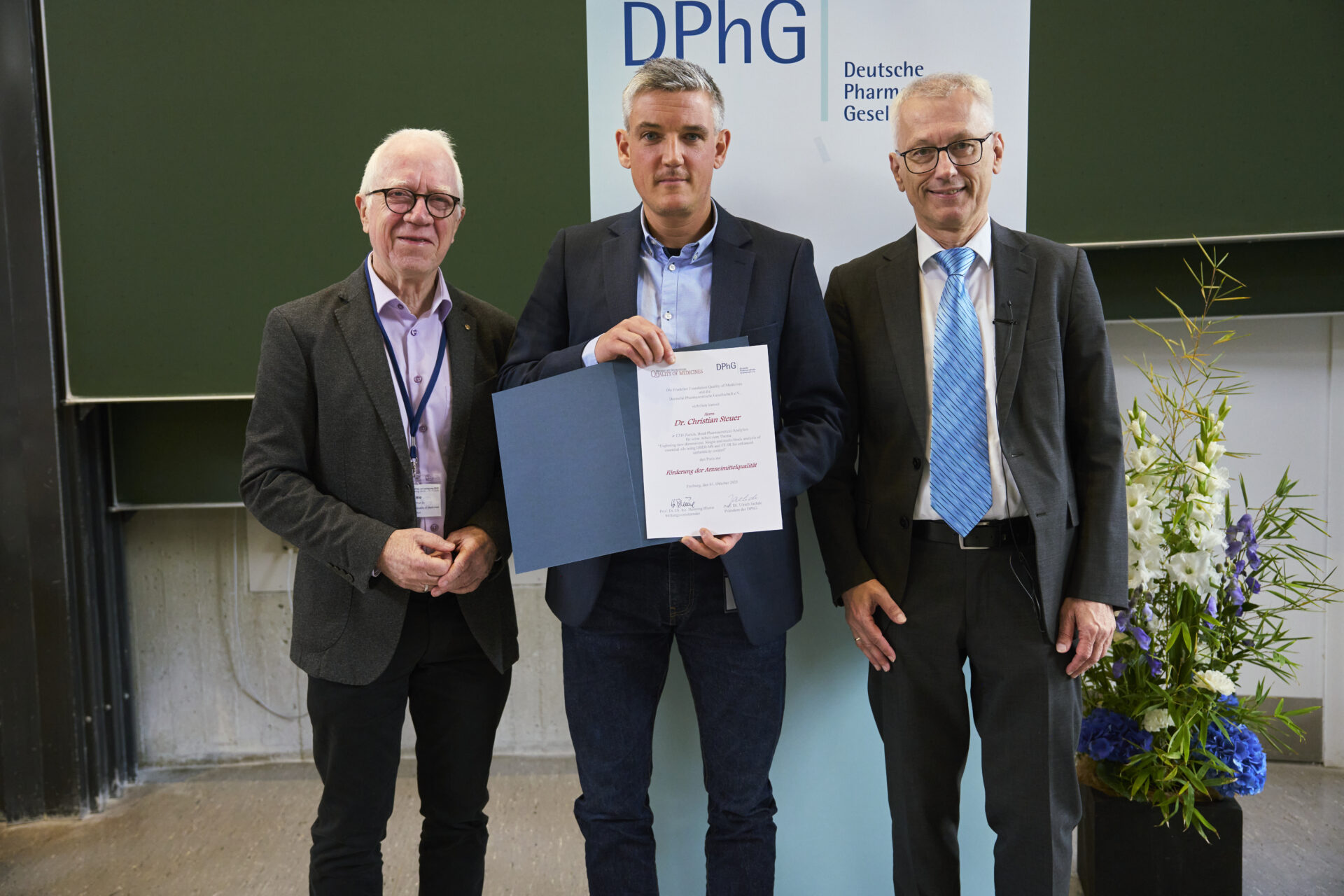
October 1, 2025 · Prices and Awards
PD Dr. Christian Steuer received the DPhG Quality of Medicines Award 2025
At the DPhG Annual Conference in Freiburg, Dr. Christian Steuer received the DPhG Quality of Medicines Award 2025. The Frankfurt Foundation Quality of Medicines (FFQM), as the initiator and sponsor of the prize, congratulates Dr. Steuer and his team on this recognition of their scientific research projects in the standardization and authentication of complex herbal products. The award was given for the publication on the investigation of essential oils “Exploring new dimensions: Single and multi-block analysis of essential oils using DBDI-MS and FT-IR for enhanced authenticity control.” This publication represents an important and innovative contribution to the product safety of herbal medicines.
The award winner is Senior scientist and Group Leader pharmaceutical analytics at the Department of Chemistry and Applied Biosciences and head of the Pharmaceutical Analysis research group at ETH Zurich.
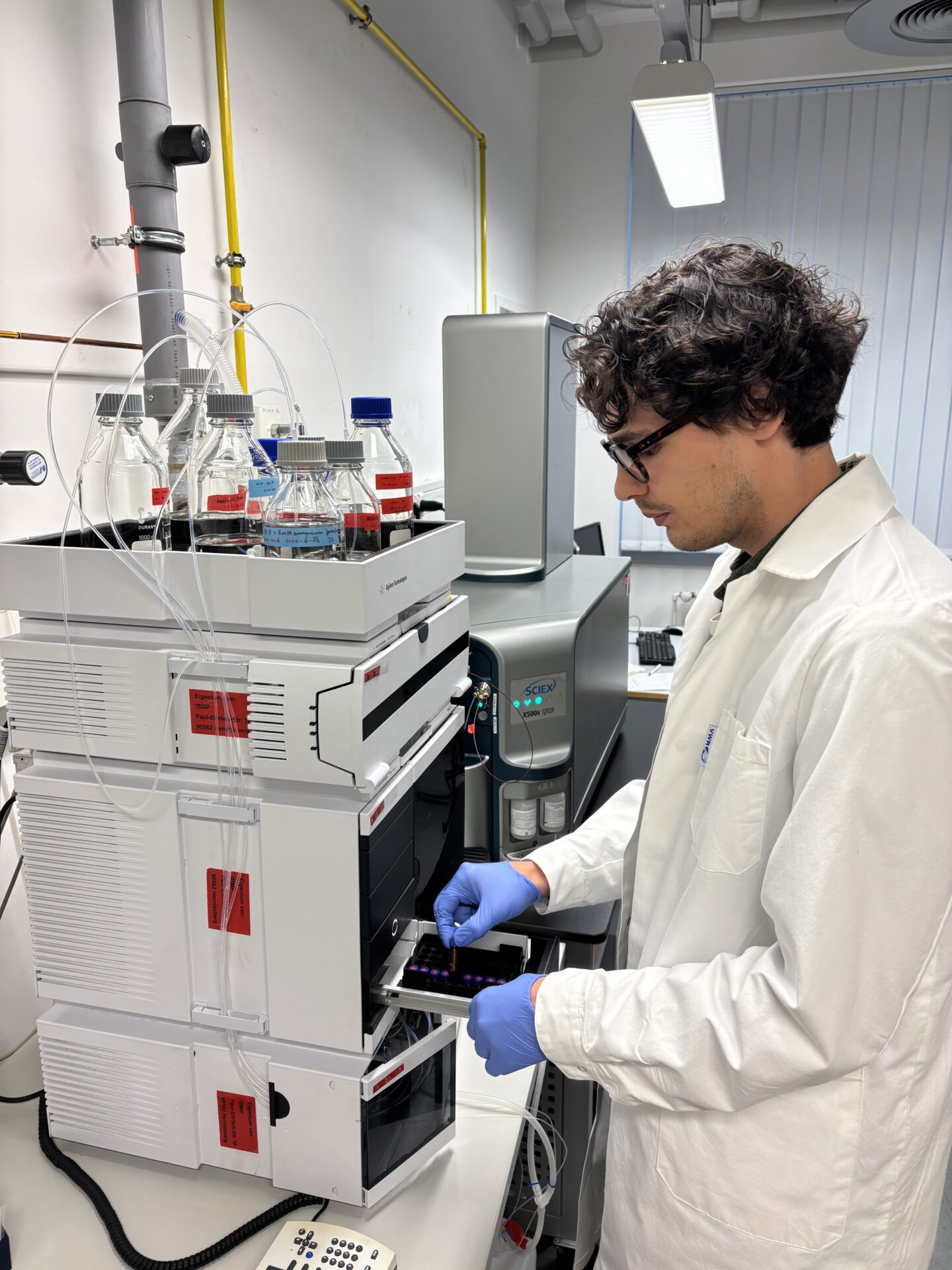
September 26, 2025 · Funding Projekts
BOTCAT: Biomarkers for controlling targeted oral cancer therapy
Over the past two decades, cancer therapy has undergone a paradigm shift with the introduction of targeted oral kinase inhibitors. However, these often exhibit off-target effects, i.e., therapy-limiting side effects that necessitate discontinuation of treatment. This is also observed in the treatment of renal cell carcinoma (RCC) with the oral tyrosine kinase inhibitors (TKIs) axitinib and cabozantinib.
The Working Group Clinical Pharmacy and Pharmacotherapy, Department of Pharmacy, LMU Munich, headed by Prof. Dr. Oliver Scherf-Clavel, is part of an interdisciplinary team involved in the ON-TARGET study. This is a multicenter, non-interventional study on therapeutic drug monitoring (TDM) in patients with RCC who are being treated with axitinib or cabozantinib. The overall aim of the study is to improve therapeutic quality, in particular the efficacy and tolerability of the two kinase inhibitors, using a closed-loop TDM approach.
A particular focus is on identifying predictive biomarkers as indicators of adverse drug reactions (ADRs) that could potentially be avoided through targeted dose adjustments.
As part of the project, Scherf-Clavel’s working group is conducting the pilot study “Biomarkers for the control of targeted oral cancer therapy (BOTCAT)”, which is funded by the Frankfurt Foundation Quality of Medicines. BOTCAT initially focuses on the proteomic analysis of selected patient samples that are temporally associated with the occurrence of ADRs. The aim is to create a database and generate hypotheses for further analysis.
The interdisciplinary research strategy aims to identify robust, predictive biomarkers to enable personalized treatment with axitinib and cabozantinib for patients with renal cell carcinoma.
September 6, 2025 · News
Pearls of Bioequivalence Award 2026 - Call for Submissions
 Pearls of Bioequivalence & Biopharmaceutics Award 2026 presented by European Federation Pharmaceutical Scientists (EUFEPS) on initiative and funding by the Frankfurt Foundation Quality of Medicines (FFQM)
Pearls of Bioequivalence & Biopharmaceutics Award 2026 presented by European Federation Pharmaceutical Scientists (EUFEPS) on initiative and funding by the Frankfurt Foundation Quality of Medicines (FFQM)
The EUFEPS/FFQM Pearls of Bioequivalence & Biopharmaceutics Award is aimed at recognizing outstanding research projects in the fields of biopharmaceutics and bioequivalence as well as the development of innovative delivery systems improving the in-vivo performance of their active ingredients and, thereby, extend the existing treatment options.
This award was originally established by the Frankfurt Foundation Quality of Medicines to support the Global Bioequivalence Harmonization Initiative (GBHI). In the future the prize, endowed with 2,000.00 €, will be awarded every second year jointly by the FFQM and the EUFEPS.
Pharmaceutical scientists are invited to apply for the award by submitting their own applications. Moreover, it is also possible to nominate research projects from other scientists/groups for this award.
Submission Guidelines:
Eligibility: Applications must be based on publications in peer reviewed scientific journal or meaningful summaries of research projects related to bioequivalence, biopharmaceutics or the development of innovative drug delivery systems and should not be older than three years at the time of submission.
Content Requirements: The submissions should demonstrate a significant scientific contribution and show originality and relevance to the field. They should provide insights into methodologies, findings, or applications that contribute in a relevant way to the state of knowledge in bioequivalence and biopharmaceutics.
Submission Format: All entries must be submitted in a clear and concise format and include the following:
Title of the publication or project
Author(s) and their contribution(s) to the project
Synopsis of the research project or copy of the publication
Deadline for Submission: November 30, 2025
Submission Procedure: Applications should be submitted by email to info@frankfurt-foundation.org with the subject line „Pearls of Bioequivalence & Biopharmaceutics Award Submission.“
Evaluation Criteria: Submissions will be evaluated based on the following criteria:
Scientific novelty and significance
Clarity and quality of presentation
Impact on the field of bioequivalence and biopharmaceutics
Award Announcement: The winner will be announced on the websites of the FFQM (https://frankfurt-foundation.org) and EUFEPS (https://eufeps.org). The award will be presented at the EUFEPS Annual Conference 2026 in Naples/Italy (27-29 May 2026).
We look forward to receiving your submission(s) and celebrating the advancements in bioequivalence & biopharmaceutical research.
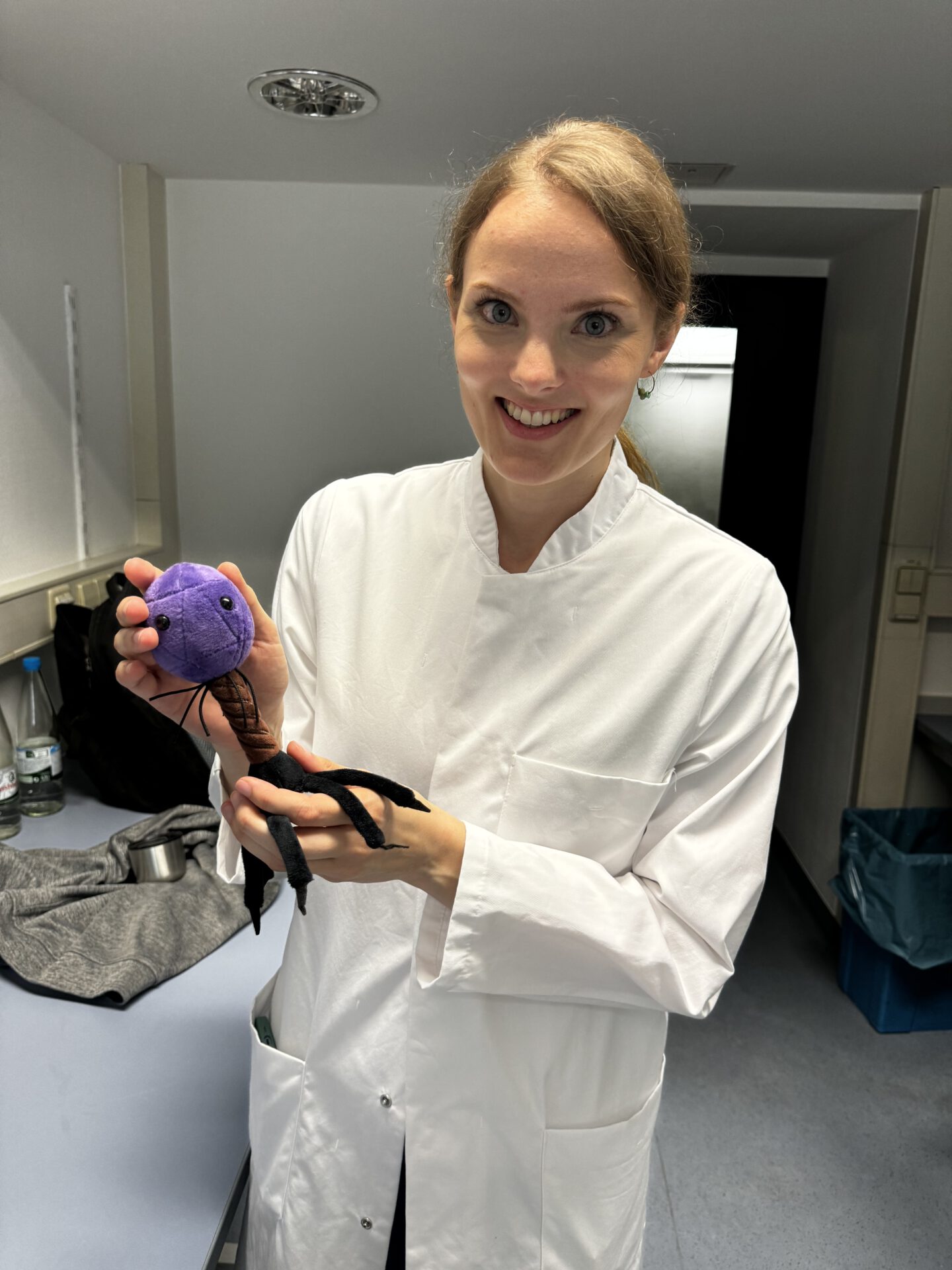
August 22, 2025 · Funding Projekts
Thousands of deaths each year due to antibiotic resistance – the FFQM promotes the clinical application of personalized phage therapy
As can currently be read in pharmaceutical journals, for example, according to estimates by the Robert Koch Institute and the Institute for Health Metrics and Evaluation at the University of Washington, resistant pathogens are directly responsible for thousands of deaths. The evaluation refers to the year 2019.
Against the background of the increasing spread of multi-resistant bacterial pathogens, alternative anti-infective therapy approaches such as bacteriophage therapy (phage therapy) are becoming increasingly relevant.
The Frankfurt Foundation Quality of Medicines is therefore pleased to support the PerPhage project, which aims to further develop a quality assurance concept for personalized phage preparations for anti-infective therapy.
Standardized, quality-assured manufacturing processes are required in order to use bacteriophages in a targeted and safe manner. Once these processes have been established, the clinical application of a tailored, safe, and effective complementary phage therapy can be developed for patients in whom antibiotic therapy has failed
The project is led by PD Dr. Silvia Würstle, MBA, Infectious Diseases Section of the II. Medical Clinic at Goethe University Frankfurt Medical Center.


